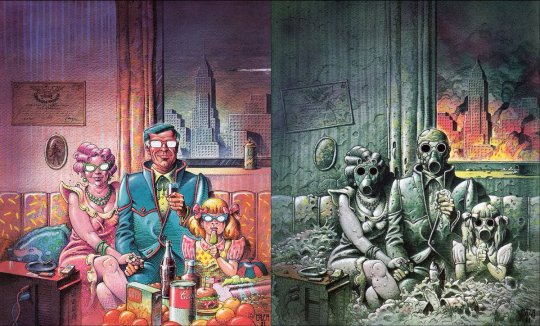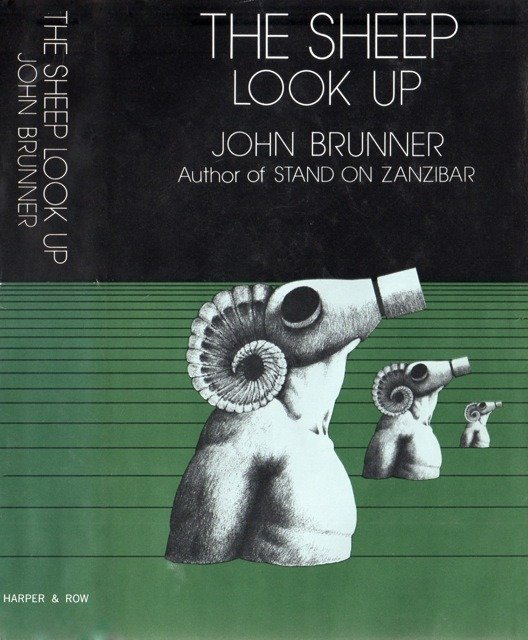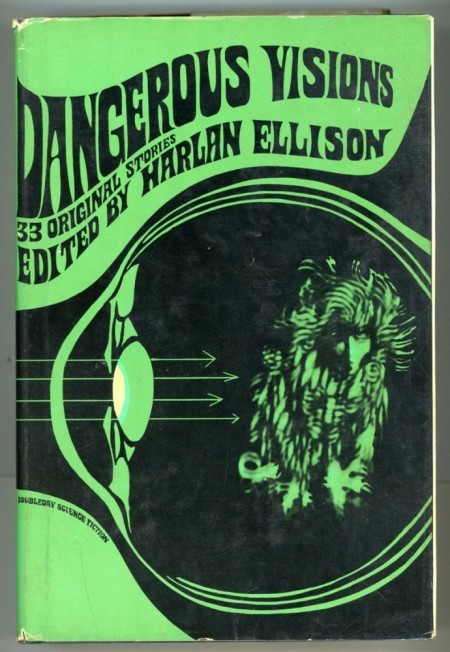Sci-fi and environmentalism. The sheep look up.
A lot of scifi in the 1970s dealt with themes of ecological collapse and overpopulation. The best book I can think of about environmental disaster would have to be The Sheep Look Up. It’s so spot-on, even for something written in the 1970s, that I don’t think anyone with an anxiety prone personality should read it.


Contrary to what a lot of novices to the genre think, the purpose of science fiction isn’t to be predictive, it’s to be the dreams and nightmares of a technical society at the moment it was created. Still, I find Orwell’s 1984 less and less relevant as time goes on. The one scifi dystopia that is still legitimately chilling to me is the Sheep Look Up, a story of environmental collapse told over several years. Sheep Look Up is a story, told over several decades, involving the end of the food supply due to overindustrialization and the fact that antibiotics stop working. The president in that book isn’t a sinister dictator, but a brain dead, always grinning front man for systems at work that are really in power no matter who anyone votes for.

The worst part of it all is that there isn’t a Rebel Alliance or anything like that; all the horrors that happen are accompanied by a very familiar inertia and passivity that makes anyone outraged feel like they’re howling into hyperspace. It’s this weird paralysis as everything awful seems to creep in on you, the fact that people just get accustomed to new horrors like wearing gas masks when outside in big cities, that is the most intense part of this book. The book draws a comparison to a bible quote about sheep rotting from the inside as they starve for a reason.
 

As for how environmentalism influenced Cyberpunk, you have to remember that cyberpunk and themes of environmentalism both came to the forefront from the same place, the New Wave writers of the 1960s, a time when a lot of counterculture and hippie themes started to enter scifi with fresh young guns like Philip K. Dick, Norman Spinrad, and Michael Moorcock. None of the New Wavers were the rocket-obsessed STEM-types the Campbell/Heinlein generation of the 1930s-50s were, who’s heroes were always wiseass engineers addicted to alcohol and giving exposition: the New Wave were more interested in cultural effects, themes like drug use, corporate power, the power of the media, and environmental destruction. The new wave were more interested in the man on the street as a hero than in adventurers. What later on became Cyberpunk as we know it, and an interest in environmental issues, both came out of the same movement in scifi.